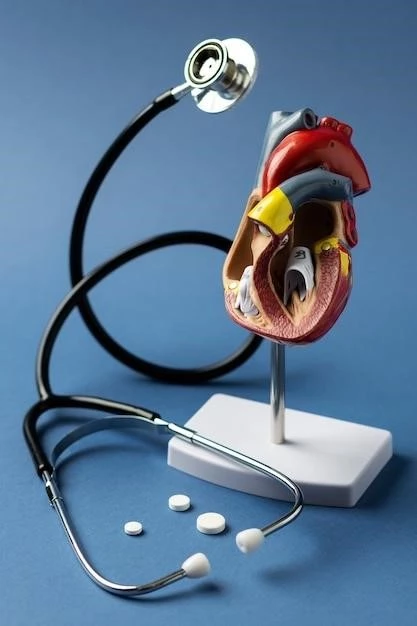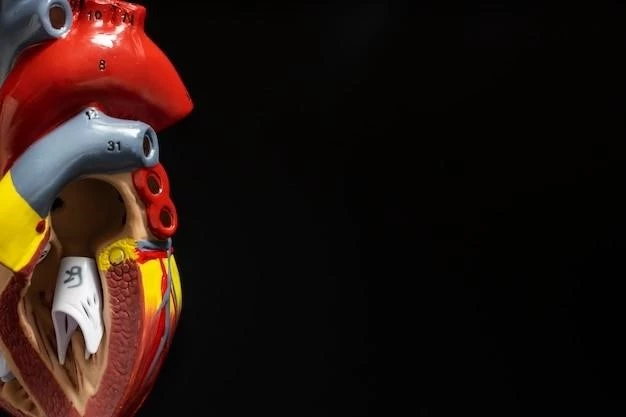Overview of Myocarditis
Myocarditis refers to the inflammation of the myocardium‚ resulting in tissue degeneration or necrosis. It is typically classified as acute‚ fulminant‚ chronic active‚ or chronic persistent‚ with viral infections being a primary cause.
Definition and Classification
Myocarditis is characterized by inflammation of the myocardium and can lead to tissue necrosis. It is a complex condition classified into acute‚ fulminant‚ chronic active‚ or chronic persistent forms. The primary cause often involves viral infections impacting the heart muscle. Differentiating myocarditis from pericarditis is crucial‚ especially in acute conditions like COVID-19 infections or post-vaccination scenarios.

Causes and Risk Factors of Myocarditis
Myocarditis is typically caused by viral infections impacting the heart muscle‚ leading to inflammation and tissue damage.
Viral Infections as the Primary Cause
Myocarditis is commonly attributed to viral infections‚ where the heart muscle becomes inflamed due to viral invasion‚ triggering an inflammatory response in the myocardium.
Other Potential Triggers and Associated Conditions
Aside from viral infections‚ potential triggers and associated conditions with myocarditis may include exposure to toxic substances‚ immune system activation‚ and occasionally other underlying medical disorders or autoimmune conditions. Understanding these triggers is crucial in determining the best course of treatment and management strategies for patients with myocarditis.
Symptoms and Complications of Myocarditis
Common symptoms of myocarditis include chest pain‚ shortness of breath‚ unusual tiredness‚ palpitations‚ and irregular heartbeats. Severe cases may lead to complications like heart failure.
Varied Presentations and Severity
Myocarditis can present with a wide range of symptoms of varying severity‚ including chest pain‚ shortness of breath‚ fatigue‚ palpitations‚ and irregular heartbeats. Recognizing the diverse clinical presentations is crucial for appropriate diagnosis and management.
Potential Complications‚ Including Heart Failure
Complications of myocarditis‚ if severe‚ can lead to heart failure. Untreated myocarditis may result in significant damage to the heart muscle that affects its ability to effectively pump blood throughout the body. In some cases‚ advanced heart failure due to myocarditis may necessitate interventions like ventricular assist devices or heart transplants.

Diagnosis and Treatment of Myocarditis
Diagnosis of myocarditis typically involves diagnostic procedures like MRI‚ endomyocardial biopsy‚ and blood tests. Treatment focuses on managing symptoms‚ addressing the underlying cause‚ and may include medications to reduce inflammation and support heart function.
Diagnostic Procedures and Evaluation
Diagnosing myocarditis typically involves a combination of diagnostic procedures such as cardiac MRI‚ endomyocardial biopsy‚ and specific blood tests to assess inflammatory markers and cardiac function. The evaluation aims to confirm the presence of myocardial inflammation‚ identify potential triggers‚ and guide appropriate treatment strategies.
Therapeutic Approaches and Management Strategies
Treating myocarditis involves managing symptoms‚ addressing the underlying cause‚ and potentially using medications to reduce inflammation and support heart function. Additionally‚ monitoring and follow-up care are crucial components of the management plan to ensure optimal recovery and long-term heart health.
Myocarditis in Relation to COVID-19 and Vaccination
Information regarding myocarditis post-COVID-19 infection or vaccination highlights its rare occurrence and the inflammatory response triggering symptoms like chest pain or discomfort‚ shortness of breath‚ palpitations‚ and irregular heartbeats.
Incidence of Myocarditis Post-COVID-19 Infection or Vaccination
In rare instances‚ myocarditis may occur post-COVID-19 infection or vaccination‚ manifested through symptoms like chest pain‚ shortness of breath‚ palpitations‚ and irregular heartbeats. Understanding the incidence and potential association is crucial for accurate diagnosis and management.
Symptoms‚ Risks‚ and Management in COVID-19 Related Cases
Post-COVID-19 infection or vaccination‚ myocarditis symptoms may include chest pain‚ shortness of breath‚ palpitations‚ and irregular heartbeats. Recognizing these symptoms promptly is essential for appropriate risk assessment and management in affected individuals.
Prognosis and Long-Term Management of Myocarditis
Recovery rates and potential long-term impacts of myocarditis vary‚ emphasizing the importance of follow-up care and ongoing monitoring to optimize patient outcomes and minimize the risk of complications.
Recovery Rates and Potential Long-Term Impacts
Recovery rates from myocarditis can vary among individuals‚ with some experiencing complete recovery while others may face long-term impacts on heart function. The importance of ongoing monitoring and follow-up care cannot be overstated to manage potential long-term implications effectively.
Importance of Follow-Up Care and Monitoring
Follow-up care and monitoring for individuals with myocarditis are essential to track recovery progress‚ identify any potential recurrent inflammation‚ assess heart function‚ and mitigate the risk of long-term complications. Regular medical evaluations and diagnostic tests play a crucial role in ensuring optimal heart health and overall well-being post-myocarditis diagnosis.
